UNDERGRADUATE COURSES

Online ENES140 Discovering New Ventures: Foundations in Entrepreneurship
Explore dynamic startup topics by designing a new venture this Spring term. Learn how to identify and explore entrepreneurial opportunities. Build your entrepreneurial mindset and business skillsets to launch new ventures. This course will assist aspiring entrepreneurs in developing great ideas into great companies.
Sample Online Lecture:
learn. launch. fly.
- Online course is held asynchronously, allowing students to complete the course from anywhere at anytime.
- View the weekly video lectures in the user-friendly course format with discussion boards to find peers with complimentary skillsets.
- Earn three Scholarship in Practice credits.
- Apply credits to the Minor in Technology Entrepreneurship.
FAQs
1. Are there any face-to-face meetings?
No. This course is 100% online.
2. Is there a specific time that we meet online?
No. This class is asynchronous, meaning that all communications, videos, discussions, etc. are posted online for later viewing and participation. This allows you to develop the most convenient and effective personal work/study schedules rather than having to adhere to predetermined class meeting times.
3. How does the team interaction happen online?
We will have a combination of individual and team assignments. You may use the online tools of Canvas, to include file sharing, discussion boards, and chat rooms to perform team assignments. You're also free to use Skype or whatever other tools you prefer.
Any more questions? Contact the instructor.
Schedule
1. Entrepreneurial Perspective
- What is entrepreneurship?
- Who is an entrepreneur?
- Entrepreneurship, creativity, and innovation
- The world's most innovative companies
- Types of innovations
- Entrepreneurs and strategic decisions
- The opportunity analysis canvas
2. Entrepreneurial Mindset, Motivations and Behaviors
- Entrepreneurial mindset
- Entrepreneurial motivations
- Entrepreneurial behaviors
- Risk taking in entrepreneurial decision-making
- Risk, uncertainty, and stakeholder involvement
3. Industry Understanding
- Knowledge conditions
- Demand conditions
- Industry lifecycle
- Industry structure
- Competitive advantage
- Learning curve
- Complementary assets
- Reputation effects
4. Customer Understanding
- Macro changes that increase new venture opportunities
- Exploring real market needs
- Satisfying real market needs
- Strategic positioning
- Strategic planning
5. Business Modeling
- Value innovation
- Opportunity identification
- Introduction to business models
- The business model canvas
- Partnerships
- Outsourcing
6. Business Planning
- Defining the business plan
- Authoring the business plan
- Sales forecasting
- Managing the sales pipeline
- Developing the marketing mix
- Pricing
- Building financial statements
- Sources of financial capital
Eligibility
ENES140 fulfills the General Education requirement for Distributive Studies - Scholarship in Practice. ENES140 can also be applied to the Minor in Technology Entrepreneurship.* The 15-credit Minor prepares students for launching successful technology ventures and bringing life-changing products and services to market. Upon successful completion of ENES140, students will need to take an additional 12-credits of Minor eligible courses to earn the Minor. For more information, to see the full schedule of Minor courses, and to apply, please visit www.mtech.umd.edu/educate/minor.
Faculty
Dr. James V. Green leads the education activities of Maryland Technology Enterprise Institute (Mtech) as the Director of Learning and Development with responsibilities for designing and teaching undergraduate and graduate courses in entrepreneurship and technology commercialization, leading seed funding programs, and managing residential entrepreneurship programs for students. In 2011, he earned first prize in the 3E Learning Innovative Entrepreneurship Education Competition presented at the United States Association for Small Business and Entrepreneurship (USASBE) annual conference to recognize college educators who have created new and challenging learning activities that actively involve students in the entrepreneurial experience. He is the author of "The Opportunity Analysis Canvas", an innovative tool for identifying and analyzing entrepreneurial ideas.
Prior to the University of Maryland, Dr. Green held founder, executive, and operational roles with multiple startups to include WaveCrest Laboratories (an innovator in next-generation electric and hybrid-electric propulsion and drive systems), Cyveillance (a software startup and world leader in cyber intelligence and intelligence-led security), and NetMentors.Org (the first national online career development eMentoring community). Dr. Green earned a Doctor of Management and an MS in Technology Management from the University of Maryland University College, an MBA from the University of Michigan, and a BS in Industrial Engineering from the Georgia Institute of Technology.
Register
Register at www.testudo.umd.edu.



















